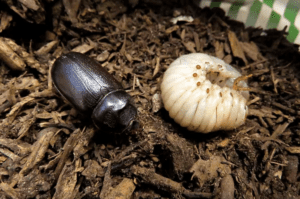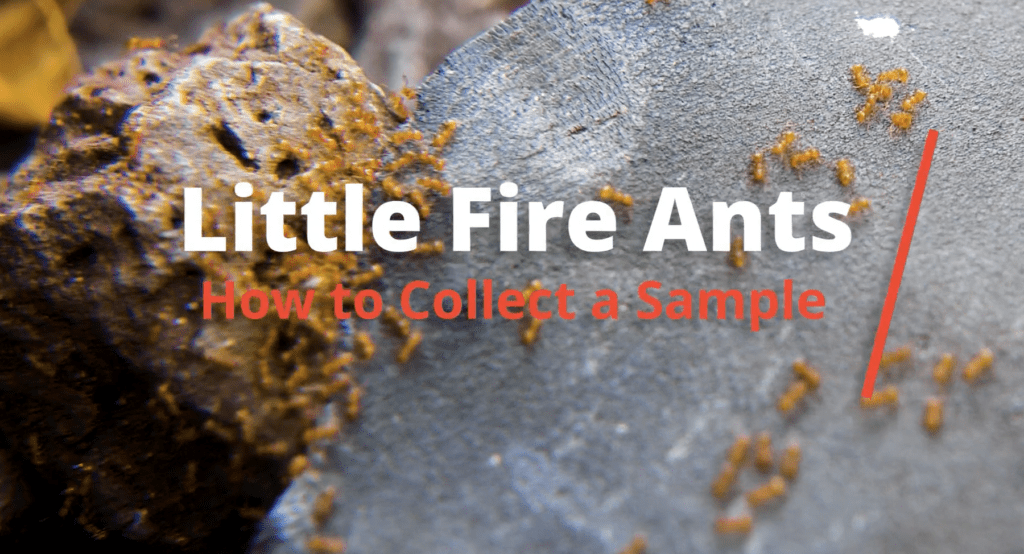When re-vegetating, reduce the spread of invasive species.
1. Prevent the spread of Little Fire Ant (LFA) , coqui frogs, Coconut Rhinoceros Beetles (CRB), and others by:
- Ensuring that any contract work requires equipment cleaning and materials inspection prior to work and site inspections to assess compliance efficacy prior to job completion/payment.
- Ask if the contractor or vendor follows BMPs for invasive species, and ask for a copy to review.
- Ask about a contractor or vendor’s previous job location/s and the known invasive species in that area. Coqui, Little Fire Ants, Coconut Rhinoceros Beetles, and weeds have all been moved to new locations on heavy equipment and materials from infested job sites.
- When purchasing or selecting materials, source plants, planting materials, and similar supplies from uninfested areas and/or from vendors that implement pest BMPs, or ones that are working under official pest mitigation compliance agreements.
- Quarantine and survey all new plants and materials for pests before outplanting, e.g. listen at night for coqui, look for CRB and damage HERE, and test all new plants for LFA by clicking HERE.


